
Real-world learning
Hands-on experience from day one with real employers, solving real problems

Become a mechanical engineering specialist and graduate with an undergraduate master's degree in just 3 years.
Introducing NMITE's MEng (Hons) Mechanical Engineering degree. This accelerated degree is available for 2026 entry.
Get to grips with this specialist and sought-after subject area through NMITE's unique and hands-on approach to education.
Mechanical engineering is a highly desirable subject-area that looks at the design, analysis, and manufacturing of systems that keep our world moving forward. With our Mechanical Engineering degree, you'll develop problem-solving and practical skills, learning from experienced academics and local and national employers. You'll benefit from significant involvement with industry partners, clearly differentiating NMITE's approach from other engineering degrees within the UK. Why? So that you're work-ready, capable of inciting real industry change, and become a specialist in your field by the time you graduate.
If you don't meet the entry requirements for this degree, then our Foundation Year will enable you to progress on to the full degree programme on successful completion.
Applications open for 2026.
Apply now and help drive the future forward for mechanical engineers, and our ever-changing world.
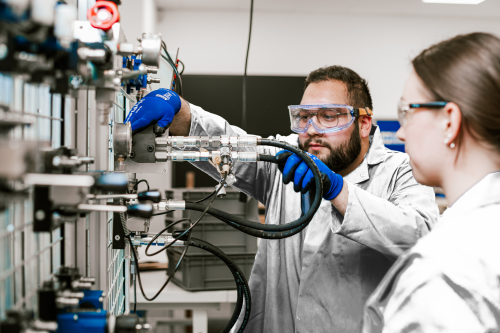

Hands-on experience from day one with real employers, solving real problems

Instead, benefit from your personal learning portfolio that will live on for life

Make the most of lots of academic contact time, with evenings and weekends free

There's no need for maths or physics at A-level - we’ll teach you what you need to know!

Inclusive of all the hardware, software and IT support you need for your studies

Learn in small student teams - no traditional lecture theatres in sight
Benefit from degrees designed in collaboration with industry partners, real-world project briefs in every module, visiting industry professionals and a work placement. Over 80 partners span local, national and global brands including JCB, Heineken, Barrs Court Engineering, Giganeer, Balfour Beatty and Schaeffler.
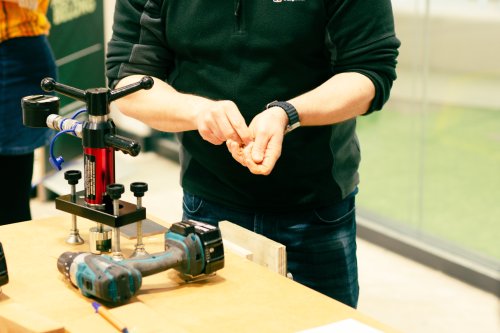
Everything you need to know about our MEng (Hons) Mechanical engineering Degree
Our MEng(Hons) Mechanical Engineering course will see you get hands-on with NMITE's integrated approach to tackle real world mechanical engineering problems. You'll apply systems thinking methods and utilise your learned knowledge of different mechanical engineering disciplines enabling preparing you for future success as a mechanical engineer.
The Foundation Year is available for applicants who do not meet the entry requirements of the degree. On successful completion, students will be able to progress directly onto year one of the degree.
Optional Foundation Year
If you didn’t get the A-level results you were hoping for, are thinking of a change in career, or if you did not follow traditional routes into higher education, then starting your studies with a Foundation Year may be the right choice for you. You'll develop the key transferable skills and subject-specific knowledge needed to continue into the full BSc degree.
Level 4
You will be introduced to the fundamentals of engineering through challenge-based learning. You will develop your independent learning and team-working skills with emphasis on project management and communication (including rhetoric, effective writing, and deep and critical reading). Industry focused communication assessment methods allow you to develop the behavioural practices of an industry ready graduate.
Level 5
You will develop a more extensive knowledge and understanding of the core areas of mechanical engineering with, where appropriate, support in mathematics and sciences. You will begin Level 5 with a challenge that provides an opportunity to understand engineering in a social/community context, and to draw across all engineering learning in level 4 to create value in that context (Creating Social Value Through Engineering). You will then undertake a further module each in the three engineering themes:
Level 6
At Level 6, it is expected that you will have become self-motivated, efficient and organised independent learners. Level 6 begins with a closer examination of application of project management techniques in mechanical engineering projects, moves through two integrative mechanical engineering modules before concluding with an individual project (Bachelor’s Project).
Level 7
You will complete two level 7 modules that extend your integrated mechanical engineering outlook to full lifecycle concerns and develop key mindsets of Research and Modelling. Following this, you will undertake an individual Master’s Engineering Project. You will develop enhanced technical and professional skills, and specialist knowledge. In addition, you will be recording and reflecting on your accumulated experiences for later use in professional recognition and job placements.
You’ll be supported fully throughout your time with us (and beyond as you become an NMITE alumnus). Discover our network of student support and wellbeing services.
We welcome applications from students from all backgrounds.
MEng(Hons) Mechanical Engineering
MEng(Hons) Mechanical Engineering with Foundation Year
Current IELTS requirement for students whose first language is not English:
Learning takes place 9-5, Monday-Friday – modelling the real workplace. Your own time is just that, undisturbed for you to enjoy.
Academic calendar
View academic calendar https://nmite.ac.uk/academic-calendar
Tuition fees (2026/27 and 2027/28 entry)
UK students
Tuition fees for AY26/27 - £11,430 per year
Tuition fees for AY27/28 - £11,735 per year
International students
£18,000 per year
Please visit our student finance page for information on tuition fees and student loans, as well as non-repayable grants, bursaries and scholarships, eligible to different groups, to support with study costs.
NMITE bursaries
We know that going to university is a financial commitment. That is why we are dedicated to easing the financial burden for our students through our bursaries and scholarships. We have several financial awards available for future and existing students.
As with all NMITE's degrees, our Mechanical Engineering degree has been designed, from conception to creation, to be different. The difference? Preparing you to be confident, skilled, world-conscious, and outstandingly employable.
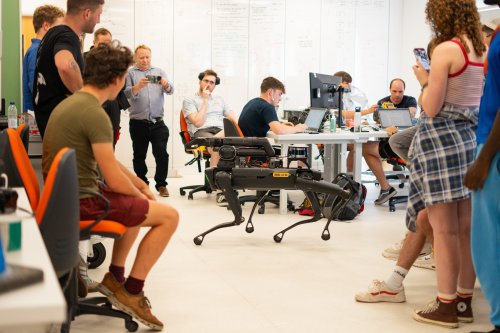
Below you'll find a list of compulsory modules for this course, each including project work with employers. There are no optional modules available. The course is taught one module (30 credits) at a time, with each module taught in an 8-week block. An academic year comprises four modules studied in eight weeks, totalling 32 taught weeks.
Meet us first-hand at an NMITE Open Day and experience The NMITE Difference for yourself. Meet students and staff, explore our campuses and check-out our accommodation too!
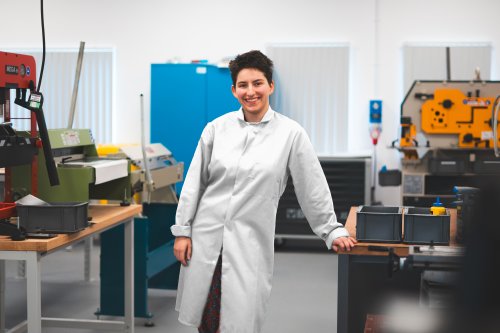
Make the most of two specialist campuses, equipped with interactive learning studios, ergonomically designed to support teamwork and boost communication. Enjoy industry standard workshops, with cutting-edge technologies – all designed with the environment in mind.
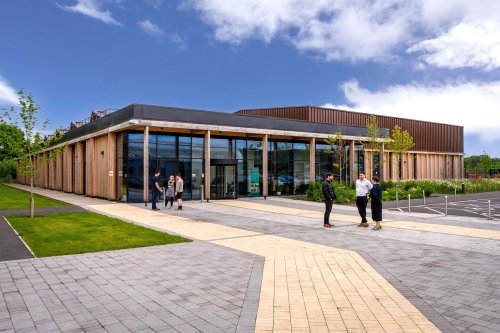

Discover our full range of engineering and technology degrees, with accelerated and Foundation Year options available
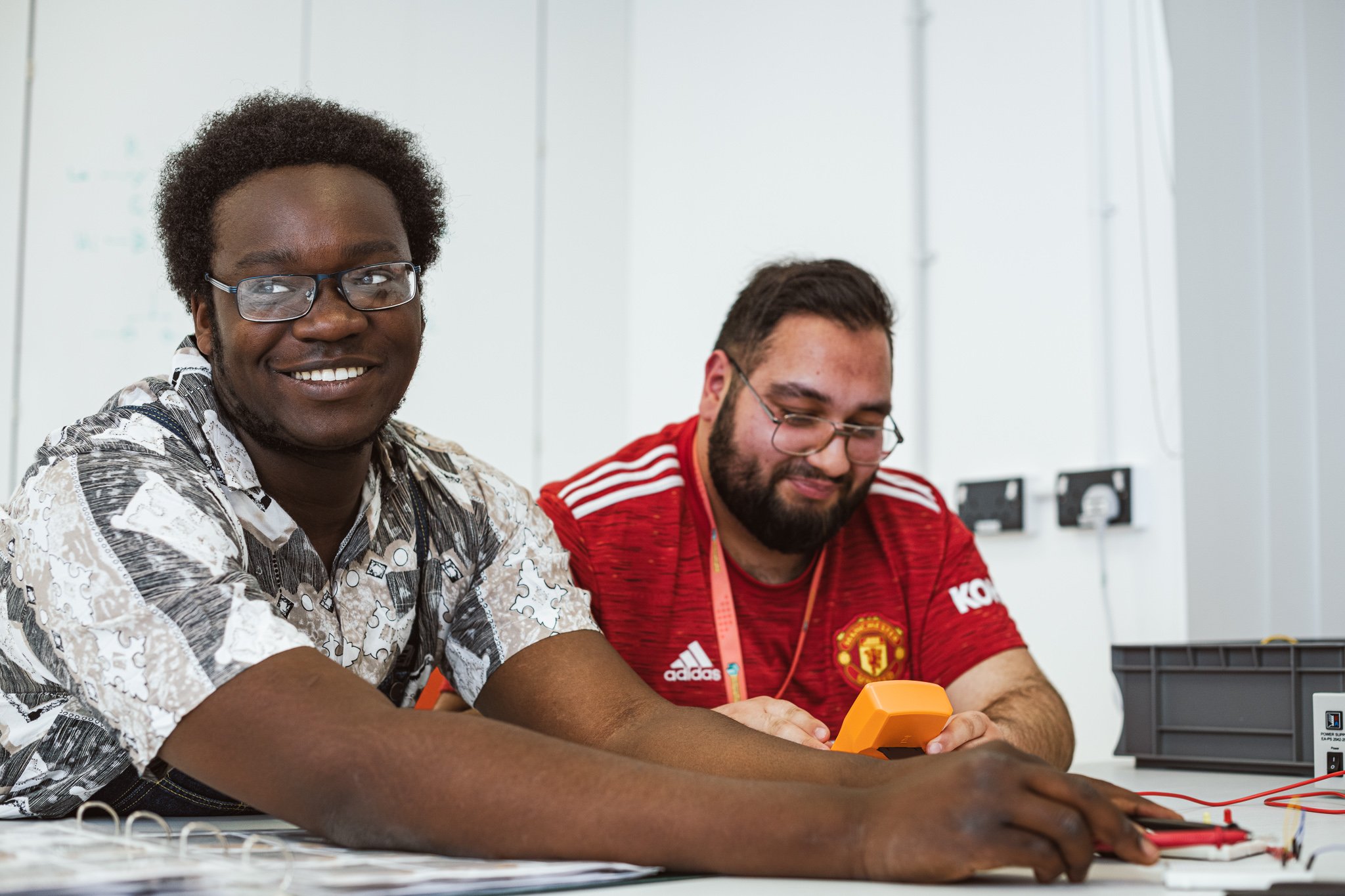
From initial enquiry to graduation and beyond, you’ll be supported at NMITE.